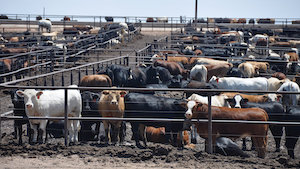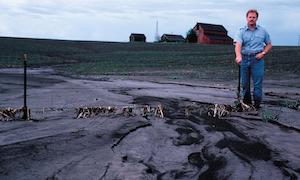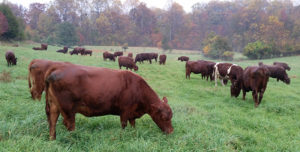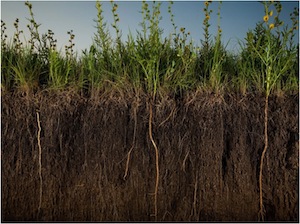To eat or not to eat meat, and how to do so as a responsible consumer. This is a dilemma approached by many of us as contradicting information is widely available.
For many, the idea of consuming another’s life is too much to overcome ethically. For others without that struggle by nature, learning the ins & outs of the meat industry may make these dietary choices more difficult. For all of us (some evolutionary scientists argue) consuming animal protein is what gave our species the leg-up to our bipedal stance, our level of intelligence, our development of communication & language. At this time of human existence of course, access to fresh food did not compare remotely to how it is today. At this point it is indeed possible to have a nutrient-rich diet without consuming animal products, due to an increase in plant-protein products & availability.
Availability & possibility doesn’t necessarily indicate health benefit, despite what many plant-based diet advocates tout.
The fact is, each individual is unique in their nutritional and dietary needs, based on constitutional/genetic health as well as lifestyle demands. Animal products provide a plethora of nutrients and high quality energy, that without a strict commitment to certain guidelines can be difficult to achieve with a plant-based diet.
Unfortunately, it’s not quite as simple as “should I eat meat or not” as there are discrepancies in the health benefits of animal products, depending on how and from where it is sourced. The meat industry today values in the trillions, with the largest American company bringing in billions of profits. Sadly, they have achieved this by putting quantity of profits over quality of value. Conventional meat production has led to a wide variety of health issues for the animals, our own bodies, and the planet. It has created a negative view of consuming animal protein, because these practices are in every way, inhumane.
The problems with conventional meat production are complex and present in every aspect across the industry.
The feed for industrially raised animals has led to monocropping of a few crops on much of agriculture land in the US. This has led to the development of GMO crops and increased use of pesticides and herbicides, which have been linked to many human diseases and cancers, destruction & erosion of the farmland top soil, and contributed to the increased rate of climate change. The breeds of animals are unnaturally selected in order to produce more muscle meat and grow faster, causing issues across the genomes. Conventional feed lots are breeding grounds for diseases and bacteria, as these animals with diminished immune systems are forced to exist in dirty, compact, crowded living spaces; not to mention the complete lack of consideration for the emotional and mental stress these animals endure. Yes, stress hormones do affect the quality of the meat. These poor living conditions and increased widespread infections have led to rampant prophylactic use of antibiotics and medications, that get passed along to our consumption.


WHY and HOW (you may wonder) has our food industry gotten to this point?
The use of pesticides and herbicides really skyrocketed after World War II, when the population boom demanded a more steady and plentiful supply of domestic crops and food, and feedlots owned by large corporations slowly but surely wiped out many small family-owned farms across the country. As our population has continued to grow, it has been argued that this means of production is the only feasible way to provide for the numbers. Considering the ever-increasing costs of healthcare and climate change however, it seems a worthy time investment to look at a food system that doesn’t create more societal costs long term.
ENTER –> Regenerative Agriculture!

You may have heard this term as it’s become more popular over the last few years, especially as movies such as Kiss The Ground, Sacred Cow & The Biggest Little Farm have come out, and organizations such as the Rodale Institute have continuously been releasing their findings on all aspects of crop and livestock agriculture on both the conventional and organic sides.
Regenerative Agriculture is essentially an approach to farming that uses specific practices to add nutrients back into the topsoil or regenerate; in doing so, carbon is taken down from the atmosphere instead of continuously released. This allows for less soil erosion and more rainfall absorption, better microbial diversity in the soil which helps our own intestinal bacteria or flora, and a reduction of carbon in our atmosphere long term.
SO.. what does all of this have to do with YOU eating meat?
When you take a hard look at the data, the choice becomes clear. If you are a meat eater, the healthier choice for both your body, the planet at large and the rest of whom we share it with, is to stick to meat that was raised with organic, regenerative farming methods. This article from Today’s Dietitian compares the fat & nutrient profiles of conventional versus grass fed beef.
Unfortunately this meat comes at a higher price; as organic farmers are not typically granted the same government subsidies given to conventional farmers, and the organic/regenerative movement doesn’t have the corporate lobbyists pulling for their success. I see this challenge as an opportunity to be approached in a few ways:
- If you’ve delved this far into how you can be a healthier meat eater, you’ve probably read somewhere that overall consuming LESS meat than the average American diet includes is a good idea. By committing to only eating pasture raised, organic meat you may be more inspired to opt for more vegetarian meals throughout the week for the sake of your wallet.
- Shift your perspective of how you spend your dollars on food, into an investment for your health and the future of the planet. You have power as a consumer; your support for food producers that are making sustainable choices will support their mission and make more options available in the long run.
- Search for farms or ranches in your local/regional area that are practicing these farming methods. Keeping your dollars in the local economy and supporting the small players in this movement helps to increase availability for all.
Knowledge is power.
It is important to be informed on what you are putting into your body; where it comes from, what went into producing it, what effect it may have on your health if it’s something you consume on a daily basis. Information is becoming more readily available thanks to the hard work of farmers, researchers, and activists around our country.
The following is a list of some educational resources I’ve found helpful in learning about and keeping tabs on advancements within the agriculture industry. This is by no means an exhaustive list! Please share any resources you’ve also found helpful to grow the awareness:
Rodale Institute; a leading organization in research, farmer training, and consumer education
Rodale Institute 2020-Release Soil Carbon White Paper
Farmer’s Footprint: focusing on education and financial incentives for farmers that support regenerative land management, with a film highlighting the work of a family farm transitioning from conventional to regenerative
Sacred Cow: both a book and full-length documentary, making “The Case for Better Meat”
Kiss The Ground: 2020 Netflix release that highlights farms around the country working towards a regenerative future & the benefits of this approach
The World Needs Topsoil to Grow 95% of its Food – but it’s Rapidly Disappearing :: 2019 article from The Guardian
Is Grassfed Meat & Dairy Better for Human & Environmental Health?: 2019 NCBI article covering the many facets of this complex topic.
Climate-Friendly Eating :: 2021 article in Today’s Dietitian discussing what it means to create to a diet around a sustainable climate future
If you live along the Front Range of Colorado, we are blessed with a number of local suppliers and producers of pasture raised, organic meat. Below is a short list of providers I personally purchase from and highly recommend their products. Please add to this list by sharing any farms/farmers that you love and don’t see:
Locavore Delivery : delivery service offering 100% pasture raised meats


Recent Comments